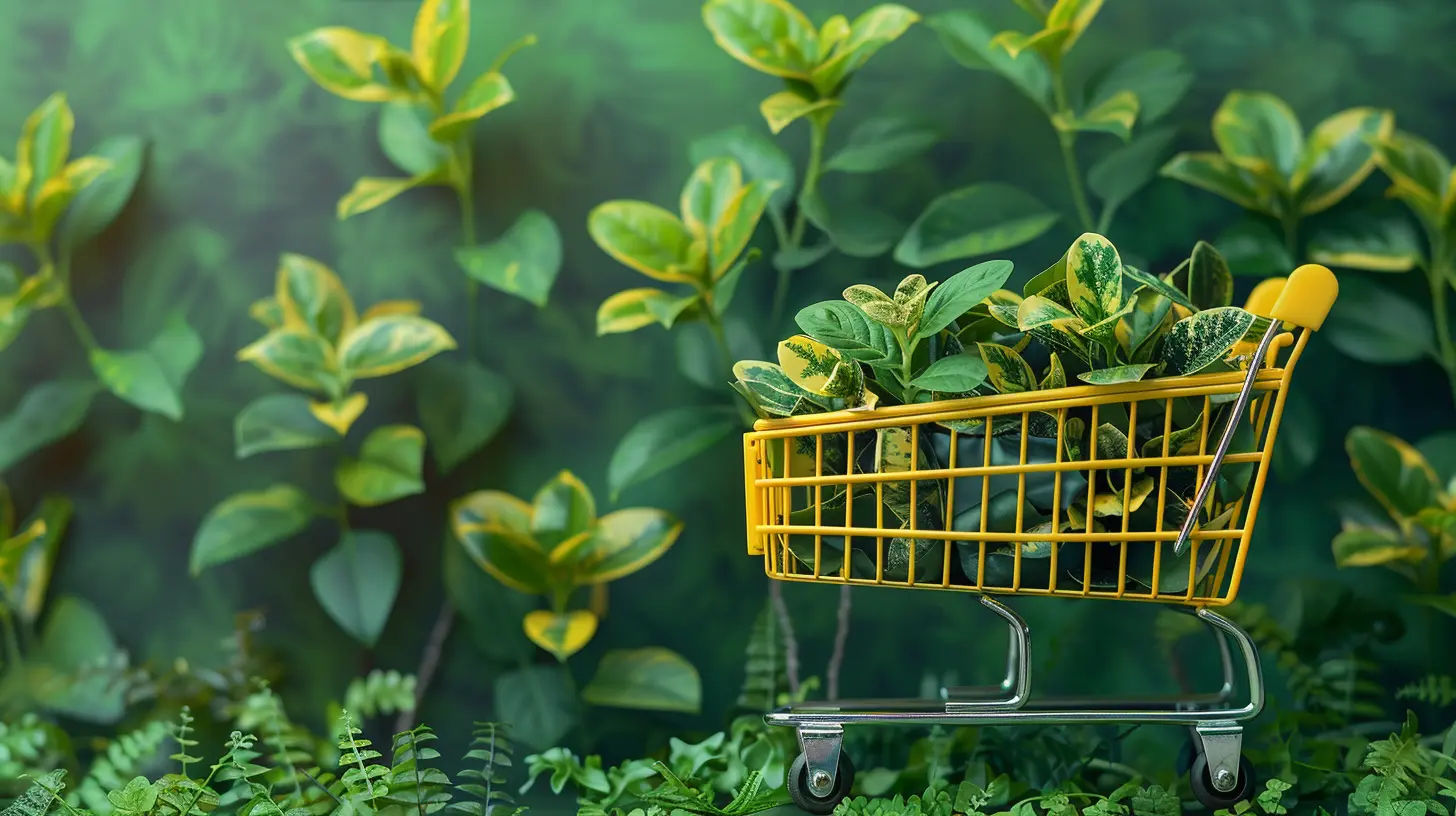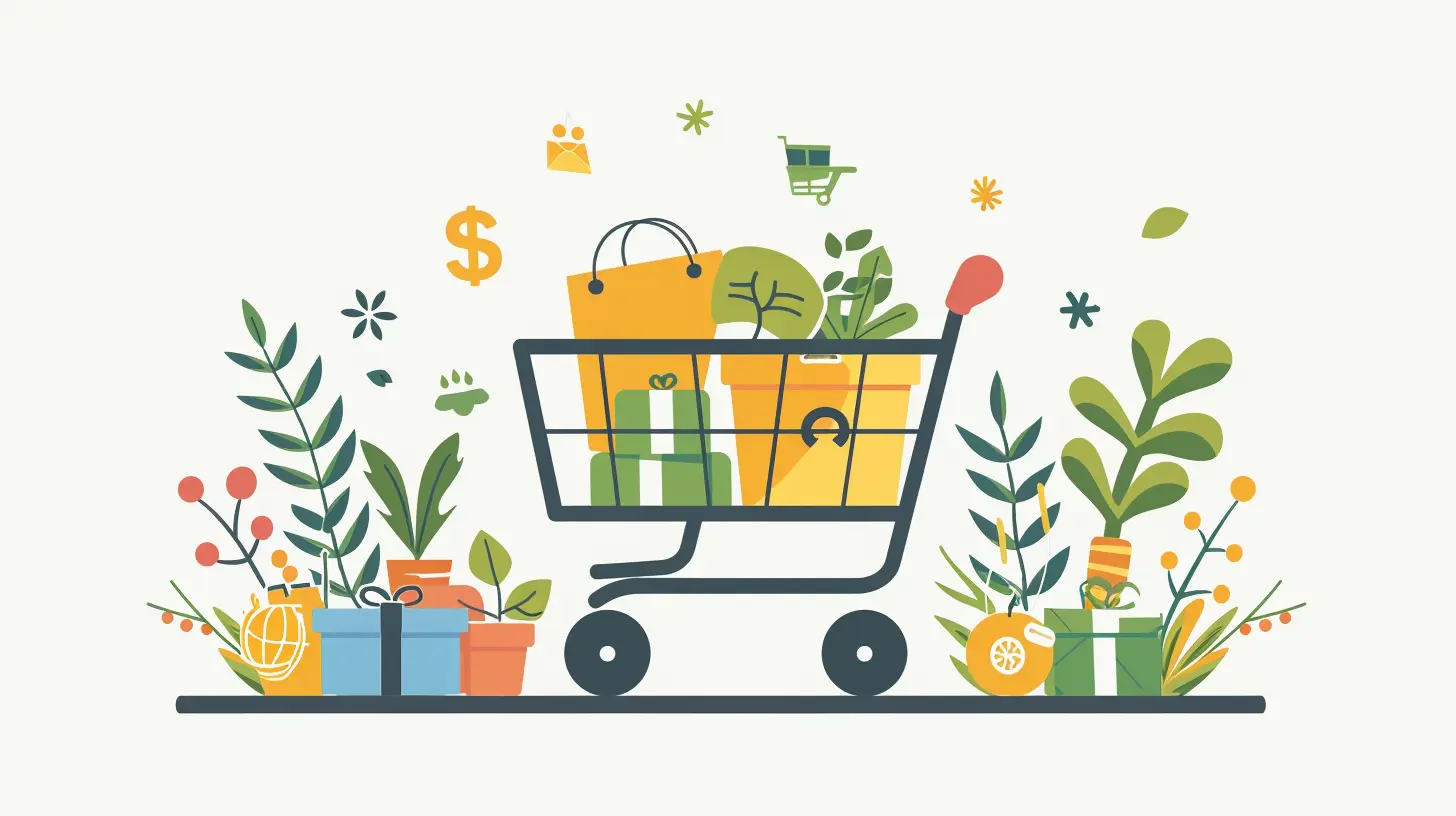Sustainability in E-Commerce: Trends and Opportunities
9 October 2025
E-commerce has taken over the world in ways we never imagined. With just a few clicks, products arrive at our doorstep, making shopping more convenient than ever. But as the industry grows, so does its environmental footprint. From excessive packaging to carbon emissions from shipping, the impact is undeniable.
The good news? Sustainability in e-commerce is no longer just a buzzword—it’s a necessity. Consumers are demanding greener practices, and businesses that embrace sustainability aren’t just saving the planet; they’re also boosting their bottom line.
In this article, we’ll dive into the biggest trends shaping sustainable e-commerce and the opportunities for businesses to go green.

Why Sustainability in E-Commerce Matters
E-commerce has revolutionized shopping, making it easier than ever to buy anything from anywhere. But this convenience comes at an environmental cost.- Packaging Waste – Most e-commerce packaging is excessive, leading to tons of plastic and cardboard waste.
- Carbon Footprint – The rapid fulfillment and shipping process contribute significantly to greenhouse gas emissions.
- Returns & Waste – High return rates in online shopping generate more waste and transportation pollution.
As climate change becomes a growing concern, businesses need to rethink their operations. Consumers want eco-friendly alternatives, and companies that prioritize sustainability are gaining trust and loyalty.

1. Eco-Friendly Packaging Is Becoming the Norm
Have you ever received a tiny item in a ridiculously oversized box filled with plastic padding? You’re not alone. Excessive packaging has been a major issue, but many brands are stepping up with sustainable solutions.Trends in Sustainable Packaging:
- Biodegradable Packaging – Materials like cornstarch, mushroom-based packaging, and even seaweed are replacing plastic.- Recycled Materials – Many brands are using 100% recycled cardboard and paper-based packaging.
- Minimal Packaging – Instead of excessive wrapping, brands are simplifying their packaging designs to reduce waste.
- Reusable Packaging – Some companies, like Loop, are promoting refillable packaging to cut down on single-use waste.
Making the switch to sustainable packaging not only helps the planet but also improves brand perception. Consumers are more likely to support businesses that prioritize eco-friendly materials.

2. Carbon-Neutral & Green Delivery Options
Fast shipping is great, but let’s be honest—it comes with a hefty environmental price. The transportation industry is responsible for a significant portion of global emissions. So, how can e-commerce brands make shipping greener?Green Shipping Strategies:
- Electric Delivery Vehicles – Companies like Amazon and UPS are investing in electric vans to cut emissions.- Carbon Offsetting – Some brands allow customers to pay a small fee to offset the carbon footprint of their orders.
- Eco-Friendly Shipping Methods – Grouping shipments, slower delivery options, and using local warehouses to reduce travel distance are becoming more common.
- Sustainable Logistics Partners – Brands are teaming up with eco-conscious logistics providers to minimize environmental harm.
Customers appreciate brands that offer carbon-neutral shipping options. It’s a win-win for the planet and your reputation.

3. Ethical & Sustainable Sourcing
Sustainability isn’t just about packaging or shipping—it starts with the products themselves. Consumers are looking for ethical, eco-friendly goods that align with their values.How Businesses Are Embracing Sustainable Sourcing:
- Fair Trade & Ethical Labor – Brands are ensuring workers are paid fair wages and operate in safe conditions.- Sustainably Sourced Materials – Products made from organic cotton, recycled plastics, and renewable resources are in high demand.
- Transparency & Certifications – Certifications like FSC (Forest Stewardship Council), GOTS (Global Organic Textile Standard), and Fair Trade labels help customers identify sustainable products.
Businesses that prioritize ethical sourcing not only reduce environmental impact but also build stronger relationships with conscious consumers.
4. Circular Economy & Second-Hand Market Growth
The “buy, use, throw away” model is being replaced by a circular economy. Consumers are embracing resale, repairing, and renting instead of constantly buying new.Circular Economy Trends in E-Commerce:
- Resale Platforms – Brands like Patagonia and IKEA now allow customers to buy and sell second-hand goods.- Repair & Refurbishment Programs – Companies like Apple and Dell are offering refurbishment programs to extend product life cycles.
- Rental & Subscription Models – Rent the Runway and similar platforms offer clothing rentals to cut down on fashion waste.
By adopting circular economy principles, businesses can reduce waste and tap into new revenue streams at the same time.
5. AI & Data-Driven Sustainability Strategies
Technology is playing a huge role in making e-commerce more sustainable. AI and big data are helping businesses optimize operations, reduce waste, and improve efficiency.How AI Is Driving Sustainability in E-Commerce:
- Smart Inventory Management – AI helps predict demand, minimizing overproduction and unsold stock.- Optimized Shipping Routes – Data analytics help logistics companies find the most fuel-efficient delivery routes.
- Personalized Shopping Experiences – Reducing unnecessary returns by offering tailored product recommendations.
AI-powered solutions not only help the planet but also improve profitability by streamlining business processes.
6. Consumer Demand for Green Brands
Sustainability isn’t just a corporate responsibility—it’s a competitive advantage. Modern shoppers actively seek out brands that align with their values.What Consumers Expect from Brands:
- Sustainability Commitments – Clear, measurable goals for reducing carbon footprint and waste.- Eco-Friendly Products – Demand for reusable, biodegradable, and ethically made products is rising.
- Green Certifications & Labels – Customers trust third-party certifications that verify a brand’s sustainability claims.
By aligning with consumer values, businesses can foster brand loyalty and stand out in a crowded market.
Opportunities for E-Commerce Brands
Going green isn’t just about saving the planet—it’s also a smart business move. Sustainable practices can lead to cost savings, brand loyalty, and long-term growth.Key Opportunities:
1. Brand Differentiation – Stand out in a saturated market by adopting eco-friendly practices.2. Cost Savings – Sustainable packaging, efficient shipping, and AI-driven inventory management reduce operational costs.
3. Regulatory Compliance – Governments are tightening environmental regulations, and early adopters will be ahead of the curve.
4. New Revenue Streams – Second-hand sales, recycling programs, and sustainable product lines create new business opportunities.
The future of e-commerce is green. Businesses that act now will not only help the planet but also gain a competitive edge.
Final Thoughts
Sustainability in e-commerce isn't just a trend—it’s the future. Consumers are demanding change, and businesses that don’t adapt risk falling behind. Whether it’s eco-friendly packaging, carbon-neutral shipping, or ethical sourcing, every step towards sustainability makes a difference.Now’s the time to act. Businesses that embrace sustainable practices will reap the rewards—both environmentally and financially.
all images in this post were generated using AI tools
Category:
E CommerceAuthor:

Adeline Taylor
Discussion
rate this article
1 comments
Fletcher Price
Great insights on sustainability in e-commerce! It’s inspiring to see how businesses can innovate while prioritizing the planet. Looking forward to seeing more brands embrace these trends and make a positive impact. Keep up the fantastic work!
October 23, 2025 at 3:27 AM

Adeline Taylor
Thank you for your kind words! I'm glad you found the insights valuable. Exciting times ahead for sustainable e-commerce!


